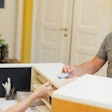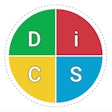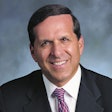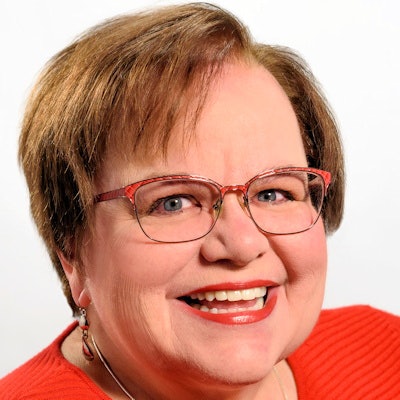
How to handle the delicate issue of asking patients to pay past-due bills is a tricky subject right now. With unemployment numbers skyrocketing and many Americans trying to figure out how to make ends meet, it's a tough time for dental practices to remind patients that they owe money.
So, how can you restart your cash flow by collecting on some past bills? We asked practice management consultant Lois Banta for her best pieces of advice.
If you want to learn more from her, you can also check out our exclusive video interview.
Q: How do you balance collecting accounts receivable (AR) with knowing what some of your patients are currently going through?
A: AR management -- it's always been tough, no matter whether we have a thriving open dental practice or we're in these uncertain times. Yes, there are tough things to manage about accounts receivables. They still need to be collected, but I think we need to use an abundance of compassion and kindness as we surround ourselves with collecting overdue accounts. But there's a lot you can do right now as we start recovering from this situation and we start recovering AR.
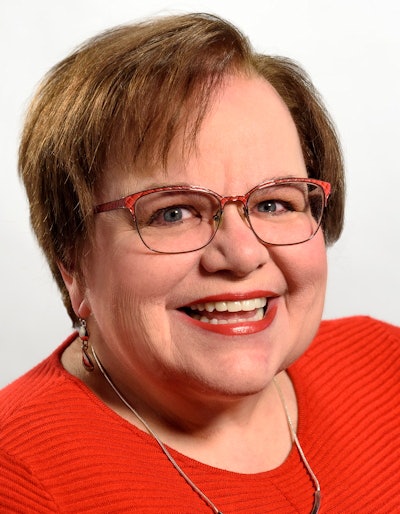 Lois Banta is the CEO, president, and founder of Banta Consulting.
Lois Banta is the CEO, president, and founder of Banta Consulting.First, make sure that you have good protocols in place for when you come back. Now is the time to really fine-tune your protocols. Make sure that you're working with a good patient financing company like CareCredit, because so many people have lost their income. They've lost their ability to make money, so therefore they've lost their ability to pay bills. Patients would benefit from the knowledge that a low- or no-interest option is available to them.
But we can also add in the AR recovery scenario. We can always reach out to those insurance companies with those unpaid claims. We can also start evaluating our insurance preferred provider organization (PPO) contracts and start requesting an increase in reimbursement. We can analyze which ones are causing us the highest amounts of write-offs. So there's a way to be able to work your accounts receivable by being able to work the insurance side first and then the accounts receivable side.
I have many letters that I've templated for anyone who would like to request them. Anybody who wants a copy of these letters can reach out to me at [email protected]. For example, I have a special letter for collecting overdue accounts with a one-time courtesy. I might encourage a dental practice to make it like a 20% or a 25% courtesy, during this uncertain time, if the patient pays his or her balance off right now.
Additionally, I recommend that you research your account balances for small balances, and I have a one-time small balance letter that I can send to readers as well. When I worked in a practice, I researched balances every quarter for the small balances. If balances were under $10, I sent a letter with a prepaid envelope. I got some very unique responses. I remember one patient sent me a thousand pennies for his $10 balance. That's OK. It was money, so we took it.
Also, being available to answer your patients' questions is really important to clean up the accounts receivables and determine what is collectible and what is not collectible. I would avoid taking collection action during this transition time. We want to use an abundance of caution there.
Q: I was reading an article earlier today that discussed how so many people are now getting nervous about finances. They are trying to figure out where they can get the money from , and I know a lot of dental practices are starting to look at those accounts receivable like we've been talking about. But I love the fact that you're talking about remaining human, even when discussing collecting money.
A: There is a lot of cash to collect out there that can easily be collected if practices set up a systematic approach to recovering the outstanding insurance dollars. I think that's the first place I would go.
Also, don't just focus on people who you think can't afford to use a credit card or write a check. I'm someone who could easily put something on a credit card, but why not use someone else's money? That's where CareCredit comes in. I recommend that you get really good training from a certified CareCredit trainer and find out what resources you can use within your own practice.
Q: People are asking every day: What should we be investing our time in learning now? I know so many practices are hopeful that the patients will come rushing back. So, now is the time to learn as many best practices as you can to prepare for that possibility, correct?
A: Absolutely. My most popular webinars right now are how to design action plans and have virtual team meetings to make a list of what you want to make a checklist for and what you want to revamp in your action plans. The collections protocols are one of the first ones, then the scheduling protocols. Those are the two that I recommend so that, when you come back, it's not chaos.
There is a real benefit to your psyche right now of keeping things positive. I'm not going to lie. I went through the multitude of emotions, those five stages of grief we often hear about, when my business suddenly stopped 100% on March 13. I mean, I'll never forget it. I was flying home, and in my car on the way home, all my business canceled.
I went through all of those stages and then I regrouped, took a breath, and planted an herb garden. I started coming up with some action plans. And so that's really what helped me stay out of my head and focus more on what was on my heart.
These are tough times. These are stressful times. And the collections part of a practice in a normal situation is stressful, right? Because we don't have really great skills for the most part in dental practices on working that system. So now we have the added stressor of COVID-19, and what do we do and how do we get that money off the books? We'll start with insurance. That's exactly where I would start.
Q: Any final thoughts?
A: You know, we came up with an idea during one of my webinars, and I am just going to share it, because I am hoping it spreads like wildfire.
I had just said I planted an herb garden and it was very life-changing for me. It really brought back my sense of doing something that I could control and seeing it grow. So I said, well, here's an idea. Have a virtual team meeting and assign a task to each team member and the dentist to plant something, and then have virtual team meetings on the progress of that plant. That will get everybody back in the frame of mind of watching that grow. Soon, you can watch your practice grow.
I would love to see virtual team meetings now where you and your team bring something positive to the conversation as you start restructuring and resetting your goals.
Lois Banta is the CEO, president, and founder of Banta Consulting, a company that specializes in all aspects of dental practice management. She also owns and is the CEO of The Speaking Consulting Network, has more than 40 years of dental experience, and consults and speaks across the U.S. She can be reached at [email protected].
The comments and observations expressed herein do not necessarily reflect the opinions of DrBicuspid.com, nor should they be construed as an endorsement or admonishment of any particular idea, vendor, or organization.















